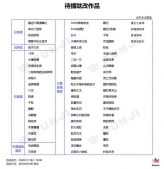本文实例为大家分享了opencv实现轮廓高斯滤波平滑的具体代码,供大家参考,具体内容如下
一个小测试的题目:
在图像上点选,找到与点选处相邻的颜色相近的点集合,对该点集合提取轮廓,对该点集合轮廓平滑处理,显示处理结果。
|
1
2
3
4
5
6
7
8
9
10
11
12
13
14
15
16
17
18
19
20
21
22
23
24
25
26
27
28
29
30
31
32
33
34
35
36
37
38
39
40
41
42
43
44
45
46
47
48
49
50
51
52
53
54
55
56
57
58
59
60
61
62
63
64
65
66
67
68
69
70
71
72
73
74
75
76
77
78
79
80
81
82
83
84
85
86
87
88
89
90
91
92
93
94
95
96
97
98
99
100
101
102
103
104
105
106
107
108
109
110
111
112
113
114
115
116
117
118
119
120
121
122
123
124
125
126
127
128
129
130
131
132
133
134
135
136
137
138
139
140
141
142
143
144
145
146
147
148
149
150
151
152
153
154
155
156
157
158
159
160
161
162
163
164
165
166
167
168
169
170
171
|
#include <opencv2/opencv.hpp>#include <iostream> using namespace std;using namespace cv; //************************************// Method: findRegion 漫水填充// FullName: findRegion// Access: public // Returns: vector<Point>// Qualifier:// Parameter: Mat img// Parameter: Point pos// Parameter: int LowDifference// Parameter: int UpDifference//************************************vector<Point> findRegion(Mat img, Point pos, int LowDifference, int UpDifference){ Mat image = img.clone(); Mat imgBack = img.clone(); Rect ccomp; Scalar pixel = image.at<Vec3b>(pos); Scalar pixel2 = Scalar(255 - pixel[0], 255 - pixel[1], 255 - pixel[2], pixel[3]); floodFill(image, pos, pixel2, &ccomp, Scalar(LowDifference, LowDifference, LowDifference), Scalar(UpDifference, UpDifference, UpDifference)); Mat diff; absdiff(image, imgBack, diff); //统计所有非零像素 vector<Point> pt; for (int i = 0; i < diff.rows; i++) { for (int j = 0; j < diff.cols; j++) { Point newPos(j, i); Scalar pixel3 = diff.at<Vec3b>(newPos); if (pixel3[0] != 0 || pixel3[1] != 0 || pixel3[2] != 0) { pt.push_back(newPos); } } } return pt;} //************************************// Method: findPerimeter 从点集合中寻找轮廓点// FullName: findPerimeter// Access: public // Returns: vector<Point>// Qualifier:// Parameter: vector<Point> pt// Parameter: Size size//************************************vector<Point> findPerimeter(vector<Point> pt, Size size){ Mat imgGray(size, CV_8UC1, Scalar(0)); for (int i = 0; i < pt.size(); i++) { imgGray.at<uchar>(pt[i]) = 255; } std::vector<std::vector<cv::Point>> contours; //获取轮廓不包括轮廓内的轮廓 cv::findContours(imgGray.clone(), contours, CV_RETR_EXTERNAL, CV_CHAIN_APPROX_NONE); return contours[0];} //************************************// Method: displayImage 显示图像// FullName: displayImage// Access: public // Returns: void// Qualifier:// Parameter: Mat img// Parameter: vector<Point> contours 轮廓点// Parameter: Point pos//************************************void displayImage(Mat img, vector<Point> contours, Point pos){ Mat imgShow = img.clone(); for (int i = 0; i < contours.size(); i++) { imgShow.at<Vec3b>(contours[i])[0] = 0; imgShow.at<Vec3b>(contours[i])[1] = 0; imgShow.at<Vec3b>(contours[i])[2] = 0; } circle(imgShow, pos, 3, Scalar(0, 0, 0), 1, 8, 0);//画用户选择的点 imshow("img", imgShow); waitKey(0);} //************************************// Method: findSmoothPeimeter 高斯滤波轮廓点平滑// FullName: findSmoothPeimeter// Access: public // Returns: void// Qualifier:// Parameter: Mat img 原图// Parameter: vector<Point> pt 轮廓点集合//************************************void findSmoothPeimeter(Mat img, vector<Point> pt){ vector<Point> contours = findPerimeter(pt, img.size()); Mat im; cvtColor(img, im, CV_BGR2GRAY); Mat cont = ~im; Mat original = Mat::zeros(im.rows, im.cols, CV_8UC3); Mat smoothed = img.clone(); // contour smoothing parameters for gaussian filter int filterRadius = 10; int filterSize = 2 * filterRadius + 1; double sigma = 10; size_t len = contours.size() + 2 * filterRadius; size_t idx = (contours.size() - filterRadius); vector<float> x, y; for (size_t i = 0; i < len; i++) { x.push_back(contours[(idx + i) % contours.size()].x); y.push_back(contours[(idx + i) % contours.size()].y); } // filter 1-D signals vector<float> xFilt, yFilt; GaussianBlur(x, xFilt, Size(filterSize, filterSize), sigma, sigma); GaussianBlur(y, yFilt, Size(filterSize, filterSize), sigma, sigma); // build smoothed contour vector<Point> smoothContours; for (size_t i = filterRadius; i < contours.size() + filterRadius; i++) { smoothContours.push_back(Point(xFilt[i], yFilt[i])); } Scalar color; for (int i = 0; i < smoothContours.size(); i++) { smoothed.at<Vec3b>(smoothContours[i])[0] = 0; smoothed.at<Vec3b>(smoothContours[i])[1] = 0; smoothed.at<Vec3b>(smoothContours[i])[2] = 0; } imshow("smoothed", smoothed); waitKey(10);} void main(){ Mat img = imread("4.jpg", 1); vector<Point> pt, contours; Point pos(1438, 590);//先列后行 int para1 = 2; int para2 = 2; pt = findRegion(img, pos, para1, para2); findSmoothPeimeter(img, pt); contours = findPerimeter(pt, img.size());//轮廓点集合 displayImage(img, contours, pos);//显示图像} |

漫水填充找到的轮廓

轮廓滤波平滑
以上就是本文的全部内容,希望对大家的学习有所帮助,也希望大家多多支持服务器之家。
原文链接:https://blog.csdn.net/qq_15947787/article/details/78518834





